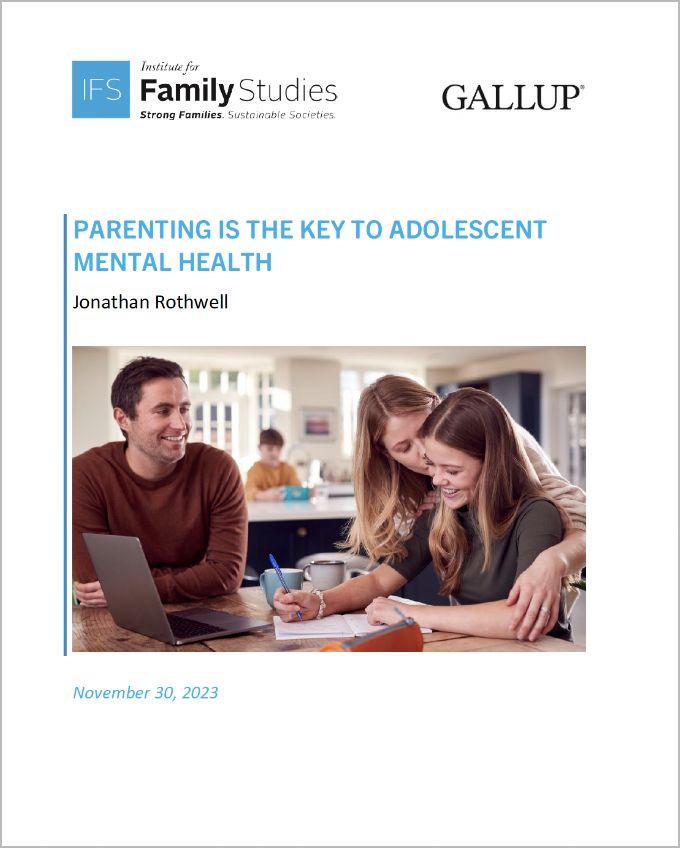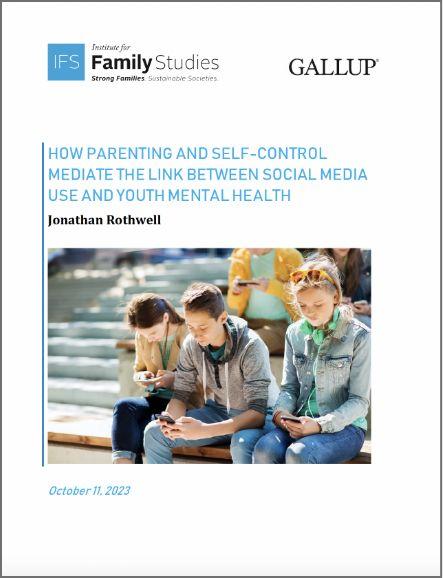From June 26 to July 17, 2023, Gallup collected responses from 6,643 parents who care for a child between the ages of 3 and 19 for the Gallup Familial and Adolescent Health Survey. For parents with teens aged 13 to 19, Gallup requested permission to also survey the child with the next birthday and collected 1,580 completed surveys from adolescents who assented. All adult respondents were members of the Gallup Panel and initially recruited through random sampling, making the panel nationally representative with appropriate weighting. Gallup statisticians created weights so that parental results could be interpreted as nationally representative of households with children between the ages of 3 and 19, by gender, age, race/ethnicity, educational attainment and region. Child responses are weighted to be representative of households with children between the ages of 13 and 19.

U.S. Parenting Survey
Using novel survey data developed by Gallup social scientists, the Institute for Family Studies and Gallup have partnered to publish research about the effects of parenting on adolescents' wellbeing.
Parenting Is the Key to Adolescent Mental Health
Today's adolescents are in the midst of a mental health crisis -- a crisis that has claimed more adolescent lives than COVID-19 between 2020 and 2023.
The Institute for Family Studies and Gallup have partnered to publish research on how parenting practices affect the parent-child relationship and adolescent mental health.
This report reveals the responses of thousands of U.S. parents and adolescents to questions about mental health and the quality of their relationship with one another.

Explore More Related Publications
How Parenting and Self-Control Mediate the Link Between Social Media Use and Youth Mental Health

Relationship Quality, Parenting Practices, and Adolescent Mental Health Across Diverse U.S. Populations
Subscribe to Our Research
Sign up to receive email updates about our latest global analytics work, including insights from our survey research and polling around the world.


